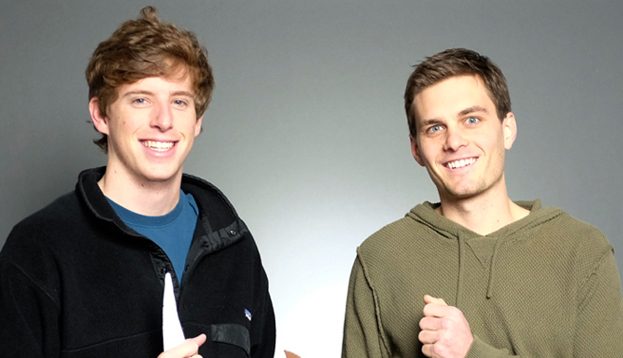Snapchat, take notice: There’s a new youth-oriented sharing app on the block, and it’s taking American college campuses by storm.
The app in question, called Yik Yak, is a social media service that works by allowing users to share Twitter-like updates “publicly, but anonymously”. The brainchild of “brogrammer” Brooks Buffington and fellow Furman University alumnus Tyler Droll, Yik Yak is a natural hit with college students eager to speak their mind without throwing their names — and reputations — into potential peril.
“For creating a huge social media app, Tyler and I probably aren’t the biggest social media users,” Buffington, a man who professes a lack of interest in established social networks like Facebook, said in a recent interview with Digiday. “But we definitely took a lot of cues from the platforms we saw problems with,” he continued, referencing Yik Yak’s level of privacy rarely found in similar social networks.
Regardless of Buffington and Droll’s actual levels of interest in contemporary social networking services, there is no doubt as to whether or not Yik Yak is serious business; its millions of users and reported buyout interest from Facebook prompted venture capital firm Sequoia Capital to value it at over $100 million after a $62 million round of funding.
“We both shared a passion for apps and technology, and wanted to make something that would be huge and world-changing,” Buffington said of Yik Yak’s inception and success.
Burned by the failure of startup Dicho, an app allowing its users to easily poll their friends, Buffington and Droll refocused their energies on anonymous content sharing. Enjoyment reading humorous anonymous Furman University Twitter accounts led the pair to develop the “local, anonymous Twitter” that would blossom into Yik Yak.
Profiles were abandoned; tweets became public messages based on location, targeted towards users in a given area like a digital community bulletin board. Messages live and die by total number of “upvotes” received, a feature borrowed from popular semi-anonymous forum Reddit.
Buffington sees the phenomenon of “identity fatigue” — the growing unwillingness of Internet users to attach their thoughts and feelings to their real names and faces — as the key to attracting a devoted user base. “On Yik Yak, you just put something out there,” he says. “If it doesn’t resonate with anyone, it’s not a reflection on you.”
Revenue generation is another creature entirely. Deep Focus CEO Ian Schafer thinks Yik Yak users’ tendency to share lewd and unbecoming thoughts will make advertisers squeamish.
Droll, for his part, sees a large opening for local advertising “in a few years”. For now, he looks to Twitter for inspiration, taking a page out of co-founder Jack Dorsey’s book by worrying about growth before revenue. “This is the new Twitter….a live pulse…a real-time feed of what’s going on.”

